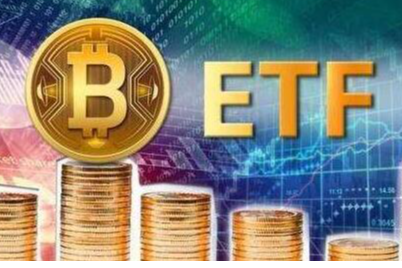文章分析了美国首家场内比特币ETF可能获批的影响,挖矿企业一边看好其带动价格,一边担忧ETF转移资金可能冲淡矿商价值。
作者:Andrew Throuvalas / 来源:Why a Bitcoin ETF Is Making BTC Miners Nervous - Decrypt
翻译:白话区块链
随着首个美国场内比特币交易平台交易基金(ETF)似乎成功在望,整个加密货币行业对这样一个产品如何增强比特币在投资界的合法性、推动机构采用以及抬升比特币价格到天际充满乐观情绪,这包括比特币挖矿公司。

随着首个美国的场内比特币交易平台交易基金(ETF)即将问世,整个加密货币行业对这一产品的乐观情绪,表明人们对它如何增强比特币在投资界的合法性、推动机构采用以及将比特币价格推向新高持有信心。
在很大程度上,这包括比特币挖矿公司——这些公司运行着大型计算机群,专门用于保护比特币网络,并获取新铸造的比特币。然而,当前比特币投资领域的一个关键事实可能让挖矿公司的投资者感到有些担忧。
“我们对ETF持乐观态度,有迹象表明它将产生积极影响,” CleanSpark的首席传媒官Isaac Holyoak告诉Decrypt。他指出,在看涨期间,挖矿股往往会继承比特币的正向势头。
尽管比特币本身今年上涨了,但公开挂牌的挖矿股票的回报率甚至更高——与其他与比特币相关的公司一样。在缺乏ETF的情况下,这些公司一直作为受监管的、更传统的比特币杠杆投资选择。
然而,这其中存在一个问题:尽管比特币ETF可能看起来很有前景,但它们也可能吸走投资者迄今为止视为下一个最佳选择的股票的资金。
就CleanSpark而言,该公司仍持乐观态度,专注于比特币的价格。“最近的进展——包括对ETF的虚假宣称以及CUSIP上市的暗示——都推动了比特币价格的上涨,”Holoyak强调道。
由于挖矿公司的大部分收入来自固定的比特币区块奖励,比特币价格的上涨将为整个行业带来更高的以美元计价的收入。
为了获得最大竞争优势,CleanSpark预计未来价格将上涨,今年已投入数百万美元购买挖矿设备。
在与Decrypt分享的十月挖矿行业报告中,摩根大通(J.P. Morgan)的股票分析师Reginald L. Smith将CleanSpark (CLSK)标记为超配股,这要归功于其以“大幅折扣价格”收购硬件和设施,并运营高效的计算机群。CLSK今年迄今上涨了122%。
今年进行重大基础设施投资的另一家公司是Iris Energy (IREN)——一家专注于可再生能源的矿工公司,对即将到来的比特币减半持乐观态度。Smith还将Iris Energy的股票评级为“超配”,今年上涨了161%。
Iris Energy的联合创始人兼联席首席执行官Daniel Robert表示:“[减半]在历史上涉及到额外的价格催化剂,因为比特币变得更加稀缺。再加上未来6-12个月宏观货币环境可能放松,我们可能迎来比特币的高光时期。”
关于ETF,罗伯茨指出,美国证交会的批准可能为比特币市场带来“大量资金池”,与减半和宏观环境放松的看涨效应相结合。
场内比特币交易平台交易基金与美国现有的比特币投资产品不同,因为其份额可以直接兑换为由提供商及其合作伙伴持有的固定数量的比特币。
HIVE Digital的首席执行官Aydin Kilic向Decrypt解释说:“场内交易平台交易基金对于目前市场上的基金选项来说是无限可取的。它将为专业投资者和零售养老账户开启这一资产类别。”
如今股市中的主要选择之一是Grayscale比特币信托基金(GBTC),该基金收取高额费用并且无法准确跟踪比特币的价格。
该信托基金的股票当前以折价交易,低于基金所持有的比特币。随着人们对该基金转变为场内比特币交易平台交易基金的努力有望成功,并且在获得批准时,这种折价逐渐缩小。如果获得批准,折价将完全消失。
尽管一些人可能更喜欢直接购买并持有比特币,但许多零售投资者可能不太愿意从通常没有受监管的加密货币专用平台购买比特币。此外,正如Iris的罗伯茨所解释的那样,对于许多较大型公司来说,直接投资比特币是完全不可能的。
他指出:“机构投资者的投资规定以及一般零售证券经纪服务的规定往往禁止在特定定义的工具和证券之外投资客户资本。因此,ETF可能是解决这个问题的一个方式。”
在GBTC之后,还有一些选择,包括加密货币交易平台Coinbase(COIN;年初至今上涨120%)和基于期货的ProShares比特币策略ETF(BITO;年初至今上涨64%)。然而,除此之外还有十几家在比特币方面表现良好的上市矿工公司。
摩根大通的史密斯在最近的一次播客采访中特别提到了Marthon Digital和Riot Platforms这两家最大的比特币挖矿公司,称它们是不如ETF的间接比特币投资。
他解释道:“与购买Riot或Marathon相比,ETF可以更直接地参与比特币市场,避免了算力、停机等问题。”
他补充说:“ETF还可能引入一整个新的套利机会领域,也许直接购买比特币并杠杆操作比通过其中一家矿工公司间接购买更便宜。”
就这种动态而言,比特币挖矿公司和矿池运营商Foundry Digital承认ETF可能会对该行业产生“反直觉的负面影响”。
Foundry的企业发展高级经理、CFA持证人Alex Altman表示:“在过去几年中,挖矿公司一直被用作在公开市场上获取比特币投资的替代方式。看到这些新的ETF工具将如何影响公开矿工估值将很有趣,因为投资者现在将有一种更直接、更具成本效益的方式来获取这一资产类别。”
免责声明:本文章仅代表作者个人观点,不代表本平台的立场和观点。本文章仅供信息分享,不构成对任何人的任何投资建议。用户与作者之间的任何争议,与本平台无关。如网页中刊载的文章或图片涉及侵权,请提供相关的权利证明和身份证明发送邮件到support@aicoin.com,本平台相关工作人员将会进行核查。




